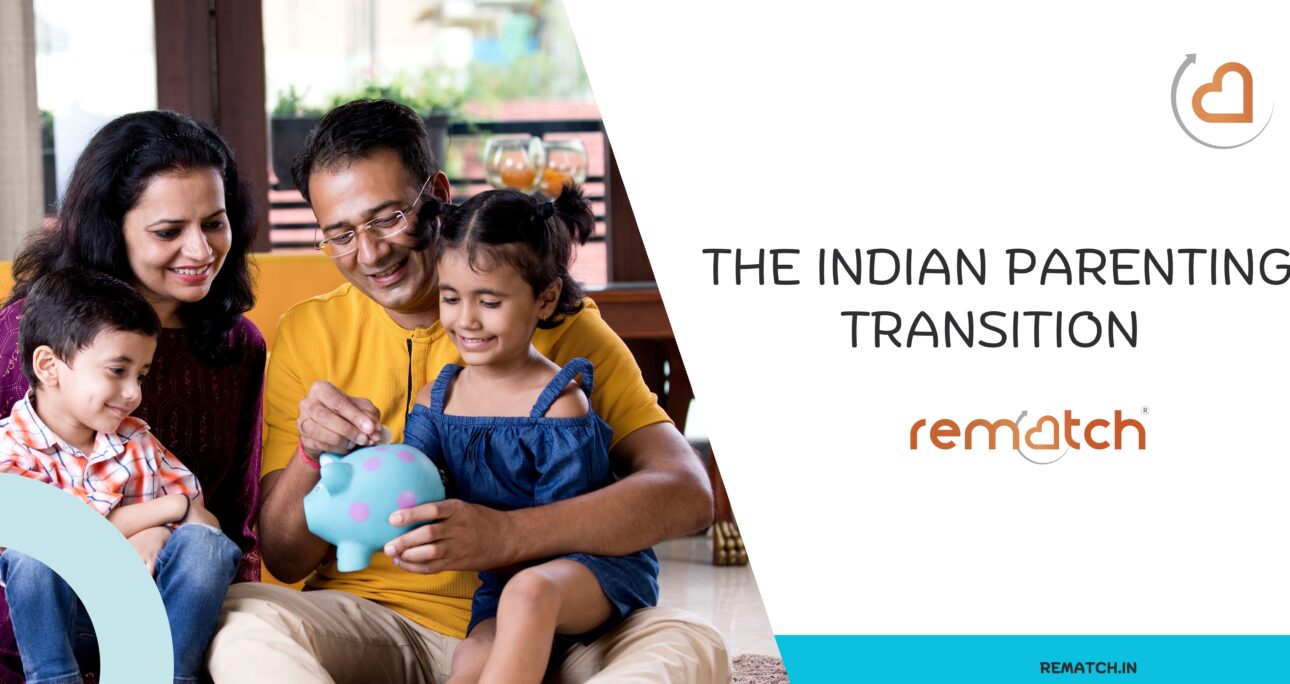What’s your Indian parenting experience?
An evolving parenting style in India: Indian parenting, like a chameleon, has morphed and adapted over the years. From traditional methods to modern approaches, Indian parents have embraced change in the ever-evolving landscape of raising children. In this context, the question arises: how have Indian mothers and fathers navigated this transformation?
The answer lies in a delicate balance between tradition and modernity. As societal values shift and cultural influences seep into every aspect of life, Indian parenting has undergone a metamorphosis. The amalgamation of age-old customs with contemporary ideals shapes the way parents in India raise their children.
In today’s Indian context, it is fascinating to witness the fusion of time-honored wisdom with progressive ideas. The evolving parenting style reflects the dynamic nature of Indian society and its aspirations for future generations. Let us delve deeper into this captivating journey through the lens of Indian parents as they navigate an ever-changing world.
Guide to Indian Parenting Styles from the 60s to 2010s
The Changing Landscape of Parenting in India
- In the 1960s, authoritarian parenting prevailed, emphasizing strict discipline and obedience.
- By the 1980s, a more permissive approach emerged, allowing children greater freedom and independence.
- In recent decades, authoritative parenting has gained popularity, focusing on balance and effective communication.
Parenting styles have evolved significantly in India over the years. Let’s take a closer look at how these approaches have transformed from one generation to another.
The 1960s: Authoritarian Parenting
During the 1960s, Indian parents predominantly followed an authoritarian parenting style. This approach emphasized strict discipline and adherence to rules. Parents held authority over their children, expecting unquestioned obedience. Discipline was often enforced through punishment rather than explanation or understanding.
The 1980s: Permissive Indian Parenting
As the country moved into the 1980s, there was a noticeable shift towards a more permissive parenting style. This approach allowed children greater freedom to explore their individuality and make decisions for themselves. Parents became more lenient in enforcing rules and were open to negotiation with their children.
Recent Decades: Authoritative Parenting
In recent decades, authoritative parenting has gained momentum in India. This style focuses on finding a balance between discipline and nurturing while fostering open communication between parents and children. It encourages parents to establish clear expectations while also considering their child’s perspective.
The transition from one generation to another witnessed diverse parenting styles in India–from the strictness of the ’60s to the permissiveness of the ’80s and finally embracing an authoritative approach today.
Changing Beliefs on Indian Parenting and Childhood in India
Earlier, academic success was prioritized above all else for children in India. Parents believed that excelling academically would guarantee a successful future for their children. However, this mindset is gradually shifting, as there is a growing recognition of the importance of holistic development.
Today, parents in India are realizing that focusing solely on academics may not be enough to prepare their children for the challenges of the modern world. They are now emphasizing emotional well-being and encouraging the exploration of various interests.
The perception of childhood as a carefree phase has transformed. Instead of simply allowing children to enjoy their youth without responsibilities, parents are actively nurturing their potential. They understand that childhood is a crucial time for laying the foundation of skills and values that will shape their children’s futures.
This evolving parenting style can be seen through various examples:
- Parents encourage extracurricular activities such as sports, arts, and music to foster well-rounded development.
- Emotional intelligence is given importance alongside academic achievements.
- Open communication and discussions about mental health are becoming more common within families.
- The concept of success is expanding beyond traditional career paths, with parents supporting entrepreneurship and unconventional choices.
Impact of Cultural Influences on Indian Parenting Practices
Cultural traditions play a significant role in shaping Indian parenting practices. In India, parenting is influenced by cultural factors that have been passed down through generations. These cultural settings and contexts shape parental behavior and beliefs about child-rearing.
One important aspect of Indian culture that impacts parenting practices is the joint family system. In such systems, decision-making and child-rearing approaches are often collective efforts involving multiple family members. This collectivistic culture emphasizes the importance of interdependence and cooperation within households.
Globalization has introduced new ideas about child development to Indian parents, impacting their choices in parenting practices. With exposure to individualistic cultures, Indian parents may adopt different approaches to raising their children. They may incorporate elements of authoritarian parenting or focus more on individual needs rather than collective ones.
Regional diversity across India also contributes to variations in parenting styles and beliefs. Different regions have distinct cultural values and norms that influence how parents raise their children. For example, in some parts of India, there is a greater emphasis on discipline and strict parental control, while in others, a more relaxed approach may be favored.
These cultural influences have implications for child outcomes as well. Research suggests that children raised in collectivistic cultures tend to exhibit lower levels of behavioral problems compared to those from individualistic cultures.
Balancing Tradition and Modernity: Striking the Right Approach
Many Indian parents today are faced with the challenge of maintaining cultural values while embracing progressive ideas in their parenting style. Striving to strike a balance between traditional norms and contemporary expectations is not only challenging but also necessary for effective parenting in the modern world.
Adapting traditional practices to suit modern lifestyles is a key aspect of this evolving parenting style in India. By incorporating mindfulness and being aware of the changing dynamics of society, parents can create an inclusive environment that promotes their children’s growth. This approach involves finding ways to maintain respect for elders while fostering independent thinking among the younger generation.
Are you a Single Indian parent? Rematch caters to your family’s requirements too. Learn more.
In the Indian parenting style, discipline is approached with a motivational orientation rather than a strict adherence to traditional methods. Parents recognize that instilling values and teaching responsibility can be achieved through positive reinforcement and open communication. They understand that the concept of achievement extends beyond academic success and encompasses personal growth, emotional well-being, and social skills development.
Religion and culture play an important role in shaping this evolving parenting style. While traditional beliefs are respected, parents also encourage their children to explore different perspectives and embrace diversity. They aim to raise children who are not only rooted in their cultural heritage but also open-minded citizens of the global community.
Research published in international journals has shed light on some challenges faced by Indian parents as they navigate this evolving landscape. Problems such as striking a balance between autonomy and parental guidance have been explored extensively. The findings highlight the importance of finding an approach that respects individuality while providing necessary guidance for children’s overall development.

Nurturing Emotional Intelligence for Effective Indian Parenting
Recognizing and addressing children’s emotions is now considered crucial in Indian parenting. By practicing mindful parenting, parents can develop a deep understanding of their child’s emotional needs. This involves being present and attentive to their feelings, thoughts, and behaviors.
Encouraging open communication helps build strong emotional bonds between parents and children. By creating a safe space for dialogue, parents can foster trust and encourage their children to express themselves freely. This allows parents to better understand their child’s perspective and provide the necessary support.
Teaching empathy and resilience equips children with essential life skills. Parents can guide their children in recognizing and understanding the emotions of others, promoting kindness and compassion. Teaching resilience helps children navigate challenges and setbacks, preparing them for the ups and downs of life.
Promoting emotional intelligence fosters healthy relationships and overall well-being. When parents prioritize emotional intelligence, they empower their children to effectively manage their own emotions as well as navigate social interactions. This leads to healthier relationships with peers, improved academic achievement, enhanced mental health, and increased self-esteem.
Incorporating parenting interventions such as positive discipline techniques further enhances emotional intelligence in children. Through consistent boundaries, clear expectations, and constructive feedback, parents can help shape their child’s behavior positively.
Conclusion
In conclusion, embracing the evolving parenting style in India is crucial for modern-day parents. The parenting styles in India have evolved significantly from the 60s to the 2010s, with changing beliefs about parenting and childhood. Cultural influences play a significant role in shaping parenting practices, but it is essential to strike the right balance between tradition and modernity.
One key aspect of effective parenting is nurturing emotional intelligence. By focusing on developing emotional intelligence in children, parents can equip them with valuable skills to navigate life’s challenges successfully. This approach fosters healthy relationships, resilience, and overall well-being.
To embrace this evolving parenting style, it is important to consider both traditional values and contemporary needs. Parents should aim to create a supportive environment that encourages open communication and understanding while also adapting to new knowledge and approaches.
In order to thrive as parents in today’s fast-paced world, it is essential to stay informed about current trends and research in child development. Seeking out resources such as books, online communities, or workshops can provide valuable insights and support.
Remember that every child is unique, so there isn’t a one-size-fits-all approach to parenting. It’s important to trust your instincts as a parent while also being open-minded and willing to learn from others’ experiences.
Embracing the evolving parenting style in India can lead to stronger parent-child relationships, better emotional well-being for children, and ultimately contribute towards raising confident individuals who are ready for the challenges of the future.
FAQs
Q: How can I balance traditional values with modern approaches to Indian parenting?
A: Balancing traditional values with modern approaches requires finding common ground between cultural expectations and contemporary knowledge. It involves respecting traditions while being open-minded towards new ideas that align with your child’s well-being.
Q: What are some practical ways I can nurture my child’s emotional intelligence?
A: Nurturing emotional intelligence involves actively listening to your child, validating their emotions, and providing a safe space for them to express themselves. Encouraging empathy, teaching problem-solving skills, and promoting self-awareness are also effective strategies.
Q: Are there any resources available to help me stay informed about current trends in Indian parenting?
A: Yes, there are various resources available, such as books on parenting, online communities or forums where you can connect with other parents, and workshops or seminars conducted by experts in the field. These resources can provide valuable insights and support.
Q: How important is open communication in parent-child relationships?
A: Open communication is vital in parent-child relationships as it fosters trust, understanding, and a sense of belonging. It allows children to express their thoughts and feelings freely while enabling parents to provide guidance and support.
Q: Is it normal for Indian parenting styles to change over time?
A: Yes, it is normal for parenting styles to evolve. As society changes and new research emerges, parents often adapt their approaches accordingly. Parenting is a continuous learning process that requires flexibility and growth.
Q: How can I ensure my child’s overall well-being while embracing an evolving parenting style?
A: Ensuring your child’s overall well-being involves prioritizing their physical health, emotional needs, intellectual stimulation, and social development. Creating a nurturing environment that supports these aspects will contribute to their holistic growth.
Q: Can you recommend any case studies or examples of successful implementation of the evolving parenting style in India?
A: While specific case studies may vary based on individual experiences, there are numerous success stories where parents have embraced the evolving parenting style in India successfully. Exploring online platforms or joining parenting groups can provide real-life examples shared by fellow parents.



